Scientists Say
A weekly word defined, in a sentence and in context. Click here to find the alphabetized list.
-
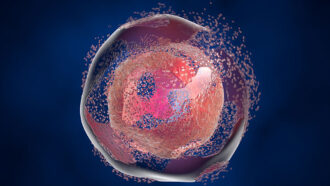 Health & Medicine
Health & MedicineScientists Say: Apoptosis
When it’s time for cells to die, they need to do it carefully, so they don’t harm other cells.
-
 Health & Medicine
Health & MedicineScientists Say: Puberty
Puberty is a time when hormones surge and people develop the ability to have children. But it’s so much more than that.
-
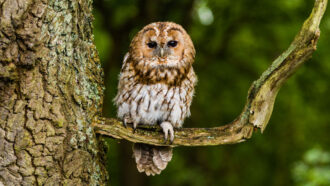 Genetics
GeneticsScientists Say: Evolution
Evolution is how species change over time. Individuals in the group vary, and some will pass on their genes. Over time, the whole species changes.
-
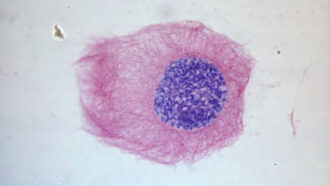 Microbes
MicrobesScientists Say: Nucleus
Nucleus comes from the Latin term “nuc,” meaning nut or kernel. In science there are lots of nuclei. Every one of them is the center of something.
-
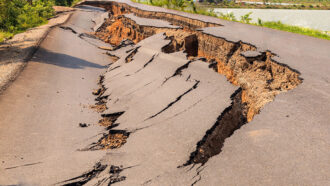 Earth
EarthScientists Say: Earthquake
An earthquake is a sudden and sometimes violent shaking of the ground.
-
 Health & Medicine
Health & MedicineScientists Say: Narcotic
Scientists refer to a narcotic as a drug that stops pain, but the word can be used in other ways as well.
-
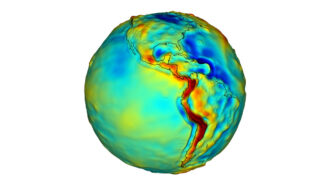 Space
SpaceScientists Say: Gravity
Gravity is a fundamental force that attracts objects with mass to other objects with mass. It decreases with distance.
-
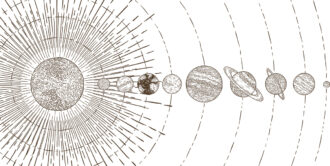 Science & Society
Science & SocietyScientists Say: Theory
A theory is an explanation of how part of the world works. It’s one that’s been tested many times and in many ways.
-
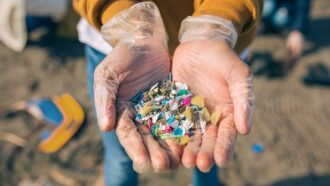 Chemistry
ChemistryScientists Say: Plastic
Plastics are made of long polymer chains and can take on many shapes. Unfortunately, they stick around for a long time.
-
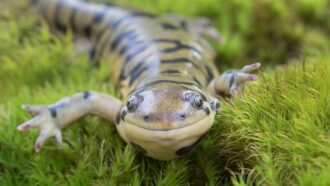 Life
LifeScientists Say: Amphibian
Amphibians are ectotherms that live dual lives — they start off in water, breathing with gills, and end up breathing air with lungs.
-
 Chemistry
ChemistryScientists say: Chemical
A chemical is anything made of two or more atoms bonded together in a fixed structure. Chemicals make up the world around us.
-
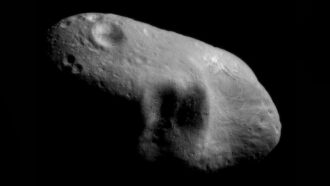 Space
SpaceScientists Say: Asteroid, meteor and meteorite
Asteroids, meteors and meteorites are all space rocks. But one is in orbit, another is in the atmosphere and the third is on the ground on Earth.